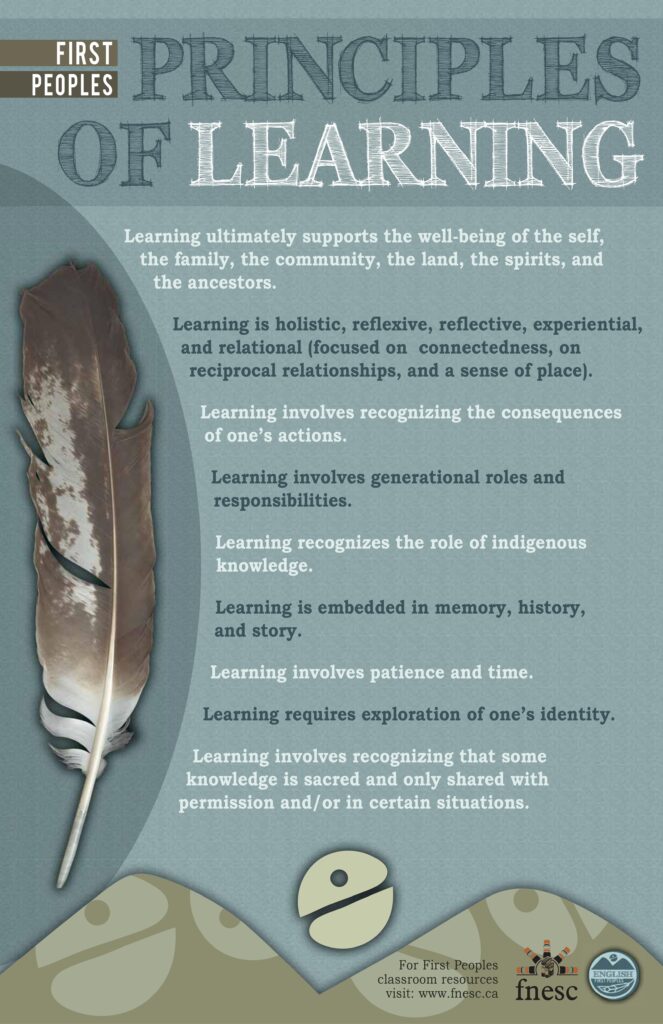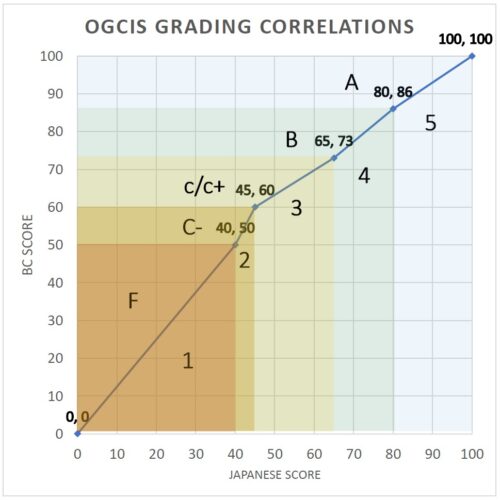BC/DD Program

BC Assessment & Curriculum Policies
| At OGCIS, whether assessment is course-based (e.g. rubrics), school-based (e.g. tests), or province-based (e.g. Literacy or Numeracy Assessment), results are analyzed by our educators to inform their planning and practice. Discussions on assessment results are shared across the curriculum with teachers, and goals are set for individual students. Results are shared with students to guide self and peer assessment and set goals for improvement. Results are also shared with parents to inform and support the learning goals for their child. We also share assessment information and data with the students' Japanese teachers as a commitment to supporting student learning in a double-diploma system. Formal reporting to parents occurs three times each year with the additional two interim reports and two student-led conferences. |
Evaluation
| BC assessment and evaluation are based on curricular Core Competencies (students DO), Big Ideas (students UNDERSTAND), and Content Learning Standards (students KNOW) for greater personalized and flexible learning. Teachers provide students with ongoing descriptive, formative feedback on their learning relative to established criteria in each grade and subject. Summative assessments occur throughout the term as quizzes and tests and a final at the end of each academic term. |
Core Competencies
The BC education system focuses on three fundamental competencies of Communication (exchanging ideas, information and experiences), Thinking (critically and creatively), and Personal and Social (self and cultural identity, responsibility and awareness) for more personalized and flexible learning.
These core competencies are embedded in each area of learning and activated through learning activities and experiences in every subject. They are a set of intellectual, personal, and social competencies that students develop over time to engage in deeper learning and lifelong learning as they become educated citizens.
|
Watch a video |
First People's Principles of Learning
|
In addition to core competencies, the BC curriculum is informed by our indigenous people’s perspectives of knowledge and awareness. BC teachers teach students with references to First Peoples principles of learning.
|

Marks
| BC and Japanese evaluation systems are not identical in focus or value. BC evaluations will be reported directly on the BC report cards/transcripts and then will be aligned for the Japanese report cards and final transcripts through a published formula. Please see Appendix A for the BC Assessment/Scoring Correlation and Grading Graph to show mark conversions between BC and Osaka Gakugei report cards each term. |
BC Assessment/Scoring Correlation
| As indicated in the Student/Parent Handbook, grading systems vary between the BC and Japanese programs. To bring congruency between the two marking systems, we use a scoring conversion guide for reporting in both the BC and Japanese reports and transcripts. When comparing your child’s Japanese report card to our OGCIS report card, please refer to the table below. Please note that values must be rounded to the nearest whole number after conversion. |


Reporting
| BC Ministry of Education guidelines require a minimum of reports per course per year describing the student’s progress. Teachers provide at least two informal communications of student learning and one formal written communication. In grades 10-12 letter grades and percentages are used on progress and summative report cards. Teachers include written, descriptive comments on student progress relevant to expectations of the learning of curricular learning standards, that are strengths-based, and include levels of student engagement and behaviours for success. |
